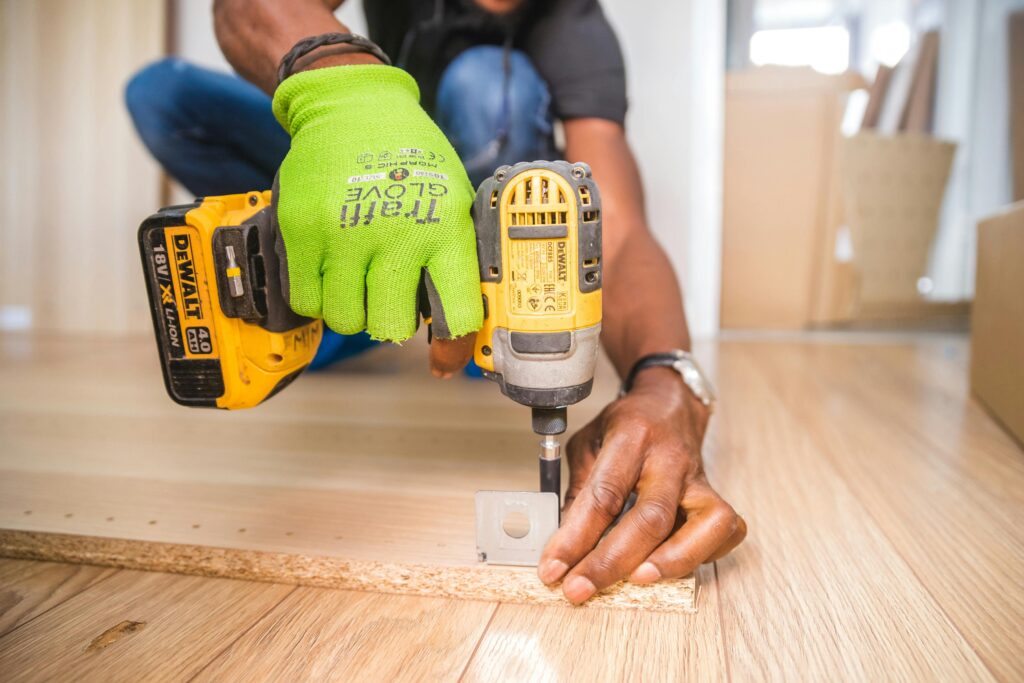
Opening a New Business Location? Avoid These 10 Common Mistakes
Opening a new business location is an exciting step for your business!
But the growth and opportunity that comes with expanding your business can often be overshadowed by the potential pitfalls that cost many business owners unnecessary time and money.
This article aims to help you navigate through the process of site selection, design, and build-out, and ensure you avoid common mistakes that could derail your project budget, vision and timeline.
Here, we’ll offer tips for how you can avoid 10 common mistakes many business owners make when opening up a new business location.
So you can keep your project on timeline, within budget, and aligned with your ideal outcomes.

Mistake #1: Overlooking Representation for Site Selection
Finding and selecting the right location can make or break the success of your business. To do it successfully requires expertise.
So why try to do it all on your own?
Consider an exclusive agreement with a commercial real estate broker to ensure you have expert guidance tailored to your unique needs.
Establishing an agreement like this signals to potential landlords and sellers that you are committed to this process and serious about finding the right location.
Ultimately, it shows them that you are not wasting their time and better ensures that they won’t waste yours.
Exclusive representation for site selection can also ensure you aren’t missing out on some of the best locations due to a lack of market insight or negotiation leverage.
Mistake #2: Skipping Due Diligence When Opening a New Business Location
It’s easy to overlook potential issues when you think you’ve found the perfect space. Beware of this common mistake.
Progressing without thorough due diligence is a huge mistake.
Due diligence is a period of time when you as the potential buyer can research and inspect the property thoroughly. This can be anywhere from 30 days to 60 days, to even 6 months.
Take time to fully exercise due diligence, even if you are in a hurry to get started.
Without due diligence, you might find yourself locked in a lease or purchase that doesn’t ultimately suit you or your business’s needs.
Can you imagine signing a lease on a property, then finding out it won’t ultimately work for your business in the short or long term? Yikes.
But it happens more often than you might think.
For this reason, it’s important that you thoroughly inspect and research a property prior to signing a lease or purchase agreement.
This includes assessing the condition of the building, understanding lease terms, and ensuring the space aligns with your business’s future growth.
But it also should include considerations like ensuring the location can be altered in the way that you want or that zoning is in the right place.
Here are things to consider in due diligence:
- What is the current condition of the property?
- Is there any mold present that I will need to address?
- Can the property be altered to meet my specific needs?
- Does the zoning align with the intended use of the property?
- Is the title to the property clear?
- What do the tax records reveal about the property’s history and liabilities?
- Are there any code violations associated with the property?
Mistake #3 Ignoring Zoning and Permitting
Zoning laws dictate how a property can be used, and not all zones permit all types of businesses.
We get it, zoning laws can be hard to understand. But there’s no avoiding them.
Do not just assume that you can operate your business anywhere.
If you do, you could open your business up to legal challenges, fines, and the possibility of having to relocate your business if it is found to be operating in violation of local zoning ordinances.
These complications can disrupt your operations, lead to significant financial losses, and damage your business’s reputation.
Save yourself these headaches and resources from the get-go.
Before you move forward with any property, ensure that your chosen location is suitable for your business’s needs by verifying zoning compliance.
This is another reason why a commercial real estate broker is an asset to you in this search. Most brokers will be able to research zoning and permitting uses quickly, so you don’t waste time.

Mistake #4 DIY’ing Your Build-Out Renovations
Do not try to manage or complete a build-out yourself (even if you think it’s simple and you can handle it on your own).
While this might seem cost-effective in the short term, there are several reasons why it’s a bad idea.
First of all, your work likely won’t comply with professional standards or building codes. This could lead to delays in permitting and additional costs of re-doing work down the road.
Something as simple as installing the wrong type of lighting can violate electrical codes, or choosing an incorrect paint type could impact environmental or fire safety standards.
DIY projects also often overlook essential details that professionals are trained to handle.
Professional contractors, on the other hand, have the expertise and knowledge base to comply with regulations and execute your vision efficiently.
More than that, they are better positioned to deal with any unforeseen issues (which will undoubtedly come up), while ensuring you meet all safety and quality standards.
In the end, attempting a build-out on your own without the requisite knowledge and experience can result in a project that exceeds your initial budget and timeline.
Hiring professionals guarantees that your project meets all legal requirements, is completed efficiently, and upholds the highest standards of quality and safety.
Mistake #5 DIY’ing Project Management
This relates closely to mistake #3: do not DIY your renovations yourself.
But also, don’t try to manage the project yourself.
Each stage of construction is dependent on the previous one being completed correctly and on time. Most likely, your renovation or build-out will require several different subcontractors – each responsible for a different part of the job.
Not only would you have to do the work of finding these subcontractors, vetting them, and hiring them. You’d need to negotiate prices and sign a contract and figure out a construction schedule so you can tell each of them when to be on site.
It requires a high level of organization to coordinate all of these subcontractors.
And, as said before, many of them can only accomplish their work after other key things are done on the site.
If they show up and the site isn’t ready for them, they’ll leave. You’ll be left wondering when they will be back. Or worse, you’ll be stuck with the hassle of rescheduling that contractor – along with all the other contractors whose schedules are now also affected.
This can lead to delays and add unnecessary stress and expense.
As a business owner, you already have a lot on your plate. Attempting to juggle dozens of subcontractors, schedules, and permits is another full-time job and it will, undoubtedly, detract from your focus on other core business operations.
There’s a reason there are professionals who manage construction projects.
Delegating this responsibility to a project manager or contractor can alleviate stress and allow you to focus on your business.
Mistake #6 Hiring Family and Friends When Opening a New Business Location
As good as the idea may seem, the old adage is almost always true:
Never do business with family and friends.
While, at first glance, it may seem like an excellent way to save costs, it often leads to subpar outcomes and strained relationships.
As we’ve already established, there’s a lot more that goes into build-outs than meets the eye.
Don’t try to cut corners here. It will only trip you up in the long run.
While it’s tempting to involve handy friends or family, professional qualifications and experience should always take precedence over personal connections to ensure a timely project outcome.

Mistake #7 Overlooking Proper Documentation
Operating a build-out without formal plans or permits is a recipe for disaster, no matter how “simple” it is.
Not only is it highly unsafe. It’s also often illegal.
Construction documents provide a clear roadmap.
They reduce misunderstandings and errors during construction and ensure the safety of your customers and employees according to codes and regulations.
If you don’t ensure alignment with codes, you won’t be able to obtain important safety permits. And if you get caught working without a permit, you’re going to be slapped with some pretty hefty fines.
This leads to added costs and more delays.
In short, just don’t do it.
Hire someone who can ensure that your build-out complies with local codes and regulations and help you avoid costly fines and delays.
Mistake #8 Overlooking Financing Options
A new business location can take time to become profitable.
Most business owners forget to give themselves a financial buffer during this process. Not securing enough capital or failing to explore financing options can strain your operations and compromise operational funds.
But financing can give you a reserve during the early stages of a business build-out and ensure that your business remains financially healthy through the process.
There are many financing options for small businesses – here are some pros and cons of each.
Don’t hesitate to reach out to a financial advisor who can help you explore your options.
Mistake #9 Disjointed Teams
If you are working with a designer on your project, make sure they are in communication with both your contractor and an architect.
Ensuring your design and construction teams are collaborating from the start will avoid wasted time and effort on designs that are impractical in your space or too costly to execute based on your budget.
A design-build contractor can streamline this process and ensure that your design vision is practical, affordable, and executable.

Mistake #10: Not Finding Someone Who Can Help when Opening a New Business Location
Avoiding common mistakes during the build-out of a new business location requires knowledge, planning, and the right partners.
While most business owners are pros at doing things themselves, you don’t (and shouldn’t) have to.
At InterVision, we distinguish ourselves as more than just a contractor, we’re your partner in success. Our goal is to help you avoid these common mistakes and make your project as seamless as possible.
We prioritize transparent communication and customized solutions to meet each client’s unique needs and budget. And our deep understanding of Tennessee’s commercial real estate market, zoning laws, and regulatory environment ensures your project is smooth from conception to completion.
Reach out here to see if InterVision could be the right fit to help you build out and open a new business location!
Leave a Reply Cancel reply
We pledge to navigate every phase of your project with meticulous care and transparency.
WHAT YOU CAN EXPECT
learn more
We are a General Contractor partnering with professionals and organizations to bring commercial building visions to life.
Who we are
Serving the Greater Memphis, TN Metropolitan area and beyond.
Serving the Greater Memphis, TN Metropolitan area and beyond.